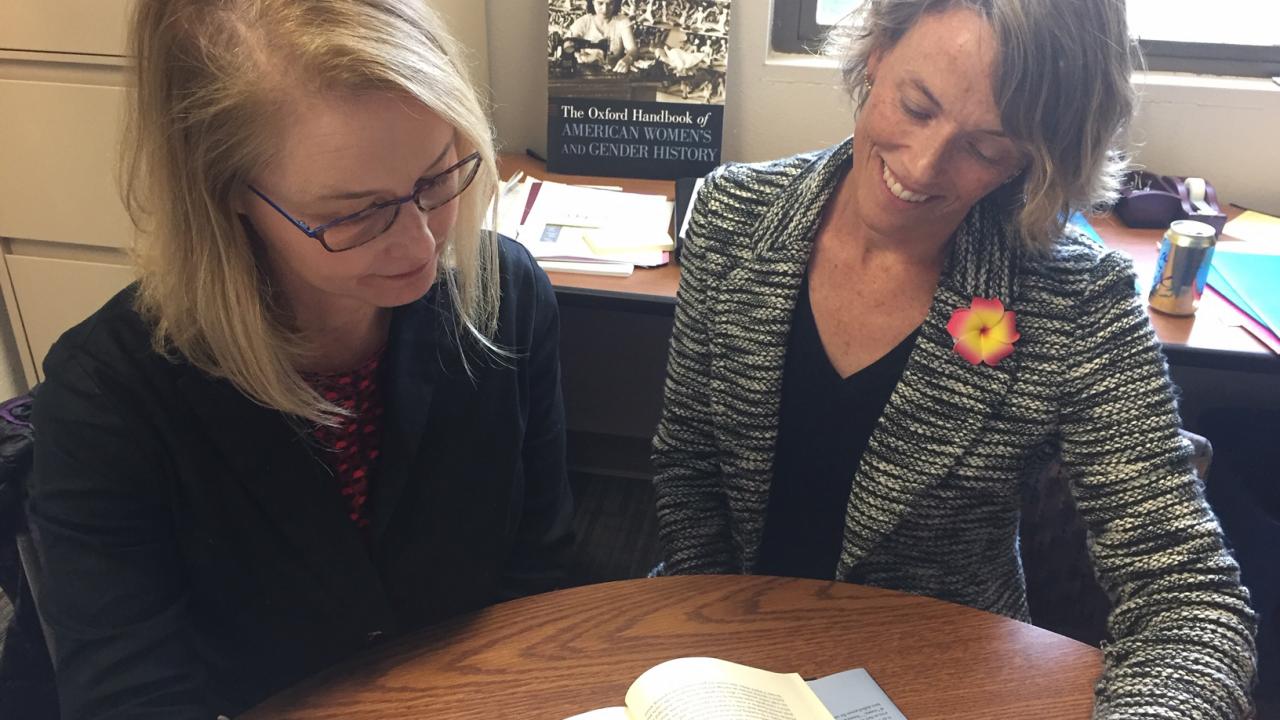UC Davis Historians Set the Women's History Records Straight
Ellen Hartigan-O’Connor and Lisa Materson of the University of California, Davis, collaborators in research and teaching of women’s and gender history for 10 years, were keenly aware of many fascinating stories about women in history, as uncovered by female historians.
But getting those stories into the big narratives of history was more than one or two people could accomplish.
Then Oxford University Press asked the UC Davis scholars, both associate professors of history in the College of Letters and Science, to create a women’s history handbook.
Creating a women's history handbook
Oxford publishes definitive handbooks on hundreds of academic subjects, but none had been done on women in American history. So Hartigan-O’Connor and Materson took on the project, determined to showcase not only women’s and gender history, but also the scholars whose intellectual innovation continues to bring women’s stories to life.
In a process that included a conference at UC Davis, Hartigan-O’Connor and Materson discussed, sought, collected and edited dozens of historians’ essays on topics ranging from slavery to politics.
The resulting book came out in October: The Oxford Handbook of American Women’s and Gender History.
Histories of entire continent
The essays illustrate the history of an entire continent through women and their ideas about gender: migration, colonialism, warfare, free and unfree labor, incarceration, sexuality, race and music, and women in the work force, in politics and in motherhood. As the first sentence of the book’s introduction proclaims: “Half of the people who have lived in North America and the United States have been women.”
Materson and Hartigan-O’Connor introduce the volume of 29 essays by explaining that female historians in previous generations “trained themselves and each other within university departments that were teaching history as defined and dominated by men … and as a result pioneered alternative methodologies and perspectives.
“This book continues their innovations, by presenting new chronologies, transnational themes, and the integration of histories about diverse women’s lives with the history of ideas about gender and their consequences.”
Timely publication
From the time of their conference four years ago, Materson and Hartigan-O’Connor knew the handbook would be relevant in today’s society. But they had no idea how timely its publication in the fall of 2018 would be — amid the #MeToo anti-sexual assault movement and during the run-up to the midterm elections in which women made historic gains.
Read the rest of the story, and listen to the historians read excerpts of their book, here.
